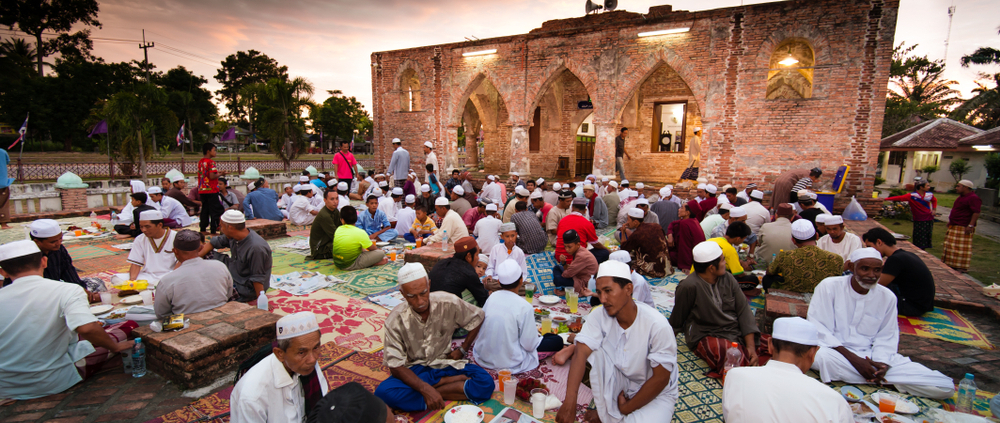Is It Permissible To Follow the Start of Ramadan According to Saudi Arabia?
Hanafi Fiqh
Answered by Ustadh Salman Younas
Question
Is it permissible to follow the start of Ramadan according to when Saudi Arabia announces it if I live in the UK?
Answer
The decisions made by Saudi Arabia about the start of Ramadan are not binding on other countries or communities simply because the decision is from Saudi Arabia.
Rather, it is best for you as a lay person to follow whatever your local mosque community (where you attend jumu’a, tarawih, and Eid prayers) and family are following. If they are determining or starting Ramadan based on Saudi Arabia, that is the process they have decided upon and accepted, and you may follow them in this without issue.
Positions of the Sunni Schools on Moon Sighting
People should note that there are multiple views within the Sunni schools regarding moon sightings:
- The global sighting was a view held by leading jurists in all four Sunni schools. It was the relied-upon position of some of these schools, such as the Hanafi and the Hanbali schools.
- The local sighting was also a view held by leading jurists of these schools. It is the strongest opinion in the Shafi’i school and also has its proponents in the other three schools.
- The calculation was also viewed as valid by leading jurists, including authoritative scholars of the Shafi’i school, such as Shaykh al-Islam Zakariyya al-Ansari and Imam al-Ramli. [Ibn Abidin, Hashiya (2:394-95); al-Taghlabi, Nayl al-ma’arib (1:79); al-Buhuti, al-Rawd al-murbi (1:412); Zakariyya al-Ansari, Asna al-matalib (5:269); al-Ramli, Nihaya al-Muhtaj (9:293); Ibn ‘Abd al-Barr, al-Istidhkar (9:30); al-Dardir, al-Sharh al-kabir (1:510)]
There are several finer details for each of these positions that cannot be detailed here. However, the main point is that there are established differences of opinion on the method of determining the start of Ramadan and other months.
While scholars have mentioned certain guidelines regarding what one should do when people and groups in a community do differ on the actual commencement date of Ramadan or Shawwal (e.g., in the absence of an authoritative and binding process, follow the majority of your local community), we need not make such differences a cause for dispute or fitna especially when people may be following valid opinions.
Avoiding Fitna and Discord
Today, our community usually has multiple bodies that we view as attempting to implement this process, and our mosques tend to follow one or another of these different bodies.
As laymen, it should be clear to us that in both scenarios, i.e., of the absence of a process or the existence of multiple differing processes, we must avoid causing a big public outcry based on limited knowledge or our own personal preferences and feelings regarding what people should do.
Arguments over process are best left to scholars in academic settings where attempts are made to create or refine these processes. Everyone else’s job is to ensure that if we are falling short in one aspect that affects our communal unity and practice, we should not intensify this by causing fitna in our local communities.
In the situation we find ourselves in the West, so long as people or bodies submit to a valid view, we must at all costs avoid being the cause of dispute and discord, and the responsibility of laymen is merely to follow qualified scholarship.
[Ustadh] Salman Younas
Checked and Approved by Shaykh Faraz Rabbani
Born and raised in New York, Ustadh Salman Younas graduated from Stony Brook University with a degree in Political Science and Religious Studies. After studying the Islamic sciences online and with local scholars in New York, Ustadh Salman moved to Amman. There he studied Islamic law, legal methodology, belief, hadith methodology, logic, Arabic, and tafsir. He is now in his final year of his PhD at Oxford University, looking at the early evolution of the Hanafi madhab.
His teachers include: Shaykh Faraz Rabbani, Shaykh Salah Abu’l Hajj, Shaykh Ashraf Muneeb, Shaykh Ahmad Hasanat, Shaykh Hamza Karamali, Shaykh Ahmad Snobar, Shaykh Ali Hani, Shaykh Hamza Bakri, Ustadh Rajab Harun and others.
Ustadh Salman’s personal interests include research into the fields of law/legal methodology, hadith, theology, as well as political theory, government, media, and ethics. He is also an avid traveler and book collector. He currently resides in the UK with his wife.
